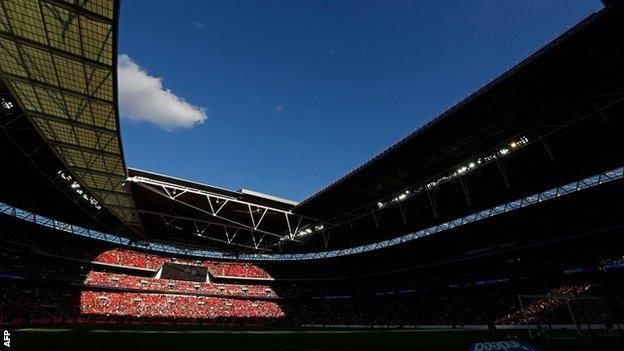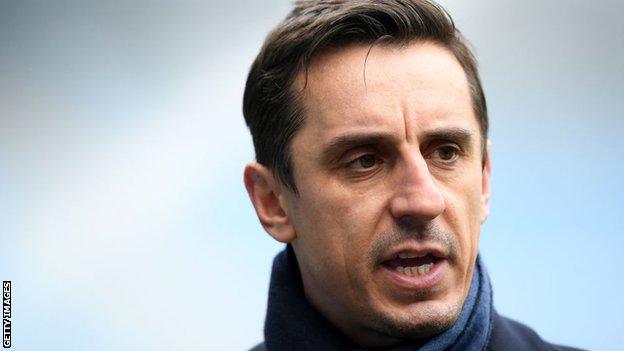Premier League should be 'taxed' to improve grassroots facilities - Former FA chairman
- Published
- comments

Wembley Stadium cost £757m to build but the FA was willing to sell it for £600m
The Premier League should be "taxed" to improve grassroots football facilities following the collapse of the Wembley sale, former Football Association chairman David Bernstein says.
Fulham owner Shahid Khan offered £600m for Wembley but withdrew his offer after the plan became "divisive".
The FA had said it would invest the proceeds of the sale into improving grassroots football facilities.
"It's a national disgrace," Bernstein told BBC Radio 5 live.
"There is not anywhere near enough money at the bottom end of our game - grassroots has been neglected," Bernstein added. "We are completely out of balance in this country.
"The Premier League does pay some monies across to other parts of football but it is nowhere near enough. My view has consistently been that the Premier League should be levied, money should go to the FA, which would be distributed to the wider game and which would make the selling of Wembley unnecessary.
"A Premier League tax if you like. It is a major, major issue. It is something that should be explored and, if necessary, looked at by government."
Since 2000, the Premier League has contributed £301.9m to grassroots projects via the Football Foundation.
For the financial years 2016-2019, it has paid £71.4m, which equates to 0.85% of the current £8.4bn television deal for roughly the same period.
Meanwhile, the FA says one in six matches were cancelled last season because of pitch quality, and only one in three pitches was deemed "adequate".

Former England defender and coach Gary Neville says the money from the Wembley sale would have disappeared within 10 years
Wembley deal collapse sparks mixed reaction
The deal to sell Wembley to Khan fell through because of a lack of support from FA councillors.
FA chief executive Martin Glenn said Khan withdrew his proposal because it was "seen as more divisive than it was anticipated".
The fall-out since has been mixed.
Sports Minister Tracey Crouch told the BBC she was "very disappointed" by the decision, calling the offer "a huge opportunity to boost funding into the development and maintenance of artificial and grass pitches up and down the country".
The Football Foundation also said a "once in a lifetime" opportunity to improve facilities had been lost, given that the money from the Wembley sale would be matched by local authorities and sponsors, equating to £1.2bn.
But Football Supporters' Federation chairman Malcolm Clarke said that after a consultation with 2,000 fans: "Only one in three thought the FA should sell to Khan while two-thirds of supporters were against selling the stadium under any circumstances."
Former England and Manchester United defender Gary Neville was another opponent of the Wembley sale, suggesting that a levy should be placed on agents' fees to boost grassroots football.
Neville described the sale of Wembley as "short-term thinking". He added: "That money will be gone inside 10 years with little impact. In 20 years it will be 'How did that sale ever go through?'"